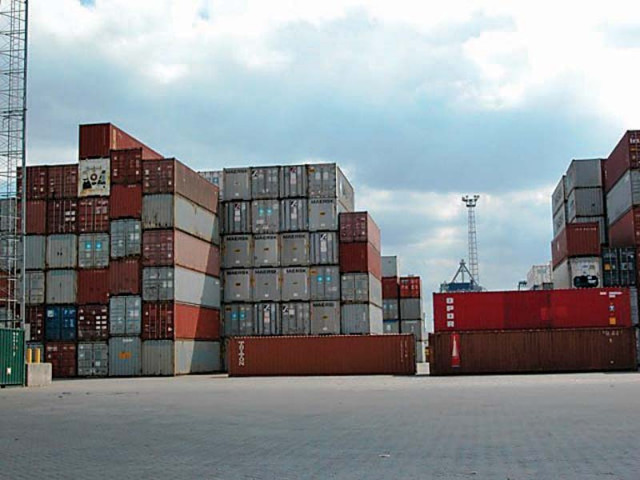Oil price plunge: Solace for consumers, anxiety for govt
Fear lurking that foreign fund inflows, exports may slow down.

The plunge in international oil prices has come as a welcome relief for the consumers in Pakistan who had been paying high prices for the past many years. However, many countries including neighbouring India are expressing concern that uncertainty in the oil markets may hurt foreign fund inflows and exports.
Pakistan is no exception and it could face a similar situation as the sharp drop in crude prices is threatening economic growth in several oil-producing nations and may slow down global demand, which will leave its impact on Pakistan’s exports.
Reports suggest that Middle Eastern states face a massive loss of $135 billion following the slump in global crude markets. This scenario will also deal a blow to the revenues of Russia and Iran, which are already experiencing difficulties due to sanctions imposed by the US.
A surge in US shale gas production and sales has shaken the world’s crude market, forcing the oil-producing nations to keep existing supplies intact on fears that the US will capture their share of the market if they cut production to stabilise prices.

Asian Development Bank Assistant Chief Economist Joseph Zveglich comments many Asian countries should be able to profit from the decline in oil prices, including emerging markets China and India. Moreover, in countries where oil is sold below market rates, authorities can capitalise on the opportunity to remove fuel subsidies without making any increase in prices, which is quite unpopular with the people.
The resources freed in the wake of the reduction in subsidies can be directed towards more productive spending, such as infrastructure development.
At present, the government provides no subsidy on oil, but it charges from power consumers less than the actual cost of production due to a poor fuel mix.
The country mainly banks on thermal power plants which produce expensive electricity. Officials of the Ministry of Water and Power say the government is providing a subsidy of Rs2 per unit to the power consumers and has set aside Rs180 billion in the current fiscal year.
Savings on this account could be spent on building major dams like Diamer Bhasha, which has dragged on for years as financial resources are not forthcoming.
Demand to fall in overseas markets
Pakistan will see a drop in demand for its export goods in the Middle Eastern countries where government revenues have taken a hit from the fast declining crude prices.
Exporters are excessively focusing on the European market after getting the Generalised Scheme of Preferences (GSP) Plus status from the European Union. But they are losing markets to competitors in other nations where they have no incentives available.

Apart from the expected dent in export earnings, Pakistan may also see a slowdown in foreign fund inflows especially in the energy sector because of low oil prices.
Revenues of state-owned hydrocarbon exploration companies – Oil and Gas Development Company (OGDC) and Pakistan Petroleum Limited (PPL) – are also under threat. That’s why the country could not fetch a good price in the OGDC share float, which was eventually cancelled, as investors did not show enthusiasm due to the fall in the company’s profit.
Commodity prices stay unchanged
Though rates of petroleum products have come down, they have not impacted prices of commodities in the country. Overall, the inflation index has dropped sharply, but people are still paying high prices for essential commodities and other consumption goods.
Even operators of transport vehicles in far-off areas are demanding higher fares and commuters are at the mercy of local administrations.
On the other hand, cotton farmers are encountering tough times as they receive lower prices for their produce, perhaps because of a cartel in the textile industry.
Bad governance is the real issue. In remote areas, petroleum dealers charge higher rates even after the government announces a cut in prices.
The government should slash power subsidy and tighten the noose around power thieves to save funds and divert them to infrastructure projects in the energy sector.
The writer is a staff correspondent
Published in The Express Tribune, December 22nd, 2014.
Like Business on Facebook, follow @TribuneBiz on Twitter to stay informed and join in the conversation.



















COMMENTS
Comments are moderated and generally will be posted if they are on-topic and not abusive.
For more information, please see our Comments FAQ